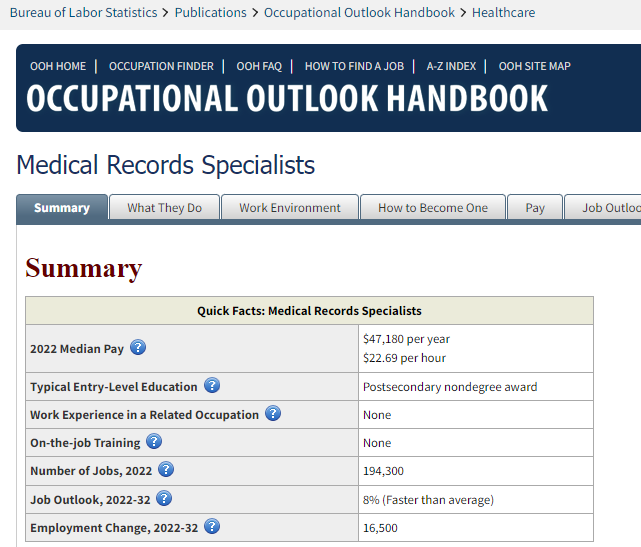Medical coding is a vital component of the healthcare industry. It involves converting healthcare procedures, diagnoses, and medical services into universal alphanumeric codes for insurance claims and medical records. If you're looking for a career that allows you to work from the comfort of your own home, medical coding might be the perfect fit for you. In this article, we will explore the steps to get started with medical coding from home, the skills you'll need, the training required, and the opportunities available in this growing field.
Why Choose Medical Coding from Home?
Working from home has become increasingly popular, and medical coding is a field that allows for this flexibility. Here are some compelling reasons to consider a career in medical coding from home:
1. Work-Life Balance: Medical coding can offer excellent work-life balance. Working from home means you can create your own schedule and have more control over your work hours. This can be particularly beneficial if you have family responsibilities or other commitments.
2. Job Stability: The healthcare industry is vast and always in need of skilled medical coders. The demand for medical coders is expected to grow as healthcare continues to evolve, making it a stable and secure career choice.
3. Remote Opportunities: Many healthcare providers and organizations are increasingly open to remote workers, especially since the COVID-19 pandemic. This trend has expanded the possibilities for working from home in the medical coding field.
4. Good Pay.
According to CareerStep, the median salary for most coding and billing specialists is between $40,000 and $66,000 a year. Medical coders can start out earning over $40,000 on average and may also receive employment benefits.
See the earnings indicated by the U.S. Bureau of Labor Statistics.

5. Career Advancement: Medical coding offers opportunities for career advancement. With experience and additional training, you can move into more specialized areas within the field or even explore related roles in healthcare administration and compliance.
6 – Short training period. The short-term training is another reason why you may want to consider starting a career in medical billing and coding.
Getting Started in Medical Coding from Home
If you're interested in pursuing a career in medical coding from the comfort of your home, here's how to get started:
1. Understand the Role of a Medical Coder
Before you dive into the world of medical coding, it's essential to have a clear understanding of what the job entails. Medical coders play a crucial role in the healthcare system by ensuring that patient records are accurately coded for billing and insurance purposes. They need to be proficient in various coding systems, such as ICD-10 (International Classification of Diseases, 10th edition) and CPT (Current Procedural Terminology).
A medical coder's responsibilities typically include:
- Reviewing medical records to identify procedures and diagnoses.
- Translating medical terms and services into standardized codes.
- Ensuring accuracy and compliance with coding guidelines.
- Communicating with healthcare providers to clarify information when necessary.
2. Develop the Necessary Skills
To excel in medical coding, you'll need a set of skills, including:
Attention to Detail: Accuracy is paramount in medical coding. You must be able to pay close attention to the details in medical records and ensure the codes are correct.
Analytical Skills: You'll need to analyze complex medical information and translate it into the appropriate codes.
Medical Terminology: A solid understanding of medical terminology is crucial. Familiarize yourself with anatomy, physiology, and medical procedures.
Knowledge of Coding Systems: Become proficient in coding systems like ICD-10 and CPT, and stay up-to-date with any changes or updates.
Computer Skills: Medical coding is largely done on computers, so being comfortable with relevant software and technology is essential.
3. Obtain the Necessary Education and Training
Medical coding is a specialized field, and to become a medical coder, you'll need to pursue education and training. Here are the steps to follow:
Choose a Reputable Program: Look for accredited medical coding programs. Many vocational schools, community colleges, and online institutions offer courses and certifications in medical coding. These programs can vary in length, from several months to a year or more.
Certification: Although certification isn't always required, it is highly recommended. The Certified Professional Coder (CPC) credential from the American Academy of Professional Coders (AAPC) and the Certified Coding Specialist (CCS) credential from the American Health Information Management Association (AHIMA) are two widely recognized certifications. To become certified, you'll need to pass the respective exams.
According to CareerStep, 83% of employers encourage or require certification for billing and coding specialists.
Hands-On Experience: Gaining practical experience is essential. Look for internships or entry-level positions in healthcare facilities to build your coding skills and knowledge.
Continuous Learning: Medical coding is a field that evolves with changes in healthcare regulations and coding systems. Stay updated by attending workshops, seminars, and continuing education programs.
4. Set Up Your Home Office
Once you've gained the necessary education and training, you'll need to establish a suitable home office. Here are some tips for creating an effective workspace:
- Choose a quiet and dedicated space where you can work without distractions.
- Invest in a comfortable chair, desk, and computer with multiple monitors if possible.
- Ensure you have a reliable high-speed internet connection.
- Get the necessary equipment, such as coding books and coding software.
- Consider ergonomics to minimize the risk of repetitive strain injuries.
5. Find Remote Medical Coding Jobs
With the right education, skills, and home office setup, it's time to start searching for remote medical coding jobs. Here are some ways to find opportunities:
Online Job Boards: Websites like Indeed, LinkedIn, and Glassdoor often feature remote medical coding job listings. Use keywords like “remote medical coder” or “telecommute medical coding” to narrow down your search.
Healthcare Staffing Agencies: Some healthcare staffing agencies specialize in connecting medical coders with remote job opportunities. They can help match you with the right position.
Hospital and Healthcare System Websites: Check the career pages of hospitals and healthcare systems in your area, as well as nationally recognized healthcare providers. Many of them offer remote coding positions.
Professional Organizations: Joining professional organizations like AAPC and AHIMA can provide you with networking opportunities and access to job listings.
Freelance Platforms: Some medical coding jobs are available on freelance platforms like Upwork and Freelancer. Keep in mind that freelancing may require you to handle your own taxes and benefits.
6. Prepare for Interviews
Once you start applying for remote medical coding positions, you'll likely need to go through interview processes. Be prepared to discuss your education, certification, and coding experience. Highlight your ability to work independently and meet deadlines. Additionally, be ready to take coding tests to demonstrate your skills.
7. Secure Your Remote Position
After successfully completing interviews and tests, you can secure your remote medical coding job. Be sure to review your employment agreement, understand your responsibilities, and clarify any questions you may have about work expectations, pay, and benefits.
Tips for Success in Remote Medical Coding
Starting a career in remote medical coding is just the beginning. To thrive in this field, consider these tips for success:
1. Stay Updated: Medical coding guidelines and regulations can change, so make it a habit to stay informed about industry updates and best practices.
2. Join Professional Organizations: Becoming a member of organizations like AAPC or AHIMA can provide you with resources, support, and networking opportunities.
3. Develop a Routine: Establish a daily work routine to maintain discipline and productivity. This will help you balance your work and personal life effectively.
4. Invest in Continuing Education: Consider pursuing additional certifications or advanced coding training to expand your skills and increase your earning potential.
5. Network: Connect with other remote medical coders to share experiences, knowledge, and job leads. Online forums, social media groups, and webinars can be valuable resources.
6. Be Organized: Efficient organization of your work and records is crucial for success. Keep detailed records of your coding work and ensure you maintain patient confidentiality.
7. Maintain Compliance: Adhere to the Health Insurance Portability and Accountability Act (HIPAA) guidelines and maintain the confidentiality of patient information at all times.
The Future of Remote Medical Coding
As healthcare systems continue to adopt digital technologies and the need for accurate medical coding remains constant, the future looks bright for remote medical coders. The demand for these professionals is expected to continue to grow, providing ample opportunities for those who choose this career path.
In conclusion, pursuing a career in medical coding from home is a viable option for those who value flexibility, job stability, and a chance to make a meaningful impact on the healthcare industry. By following the steps outlined in this article and remaining committed to ongoing learning and development, you can embark on a fulfilling career in remote medical coding.
Starting a career in remote medical coding is achievable with the right education, skills, and determination. If you're passionate about the healthcare field and enjoy working independently, this profession may be an ideal fit for you. Good luck on your journey to becoming a remote medical coder!

